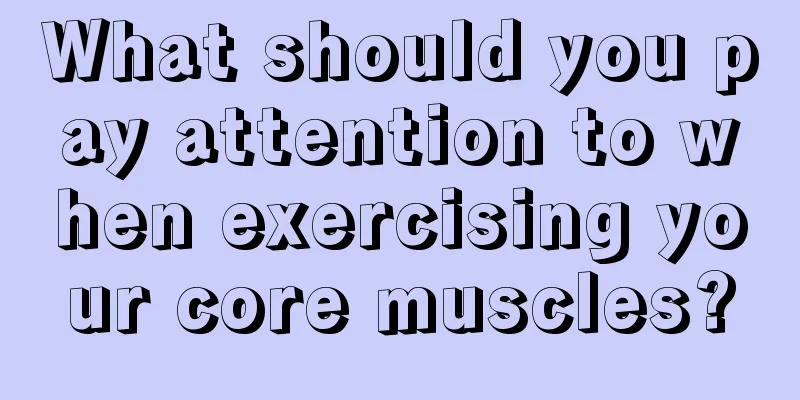What causes headaches after exercise?

|
As people's material life has become greatly enriched, they pay more and more attention to the quality of life. The improvement of quality of life is inseparable from a healthy body. Therefore, more and more people pay attention to health preservation, and more and more people use exercise to preserve their health. However, some people who have just joined the ranks of sports health care have a problem that bothers them: they feel dizzy and have a headache after each exercise. So, what’s going on? First, if you do not do warm-up exercises before exercise, the functions of internal organs such as the heart and lungs are not fully mobilized, especially the blood circulation in the whole body does not reach a high level, and nutrients and oxygen cannot be supplied to the body in time. The cerebral cortex is more sensitive to lack of nutrition, and dizziness often occurs when the supply is insufficient. Second, some people lack exercise, have weak cardiopulmonary function, and their daily activities are also relatively light. If you suddenly engage in strenuous exercise and the amount of activity is too much, the functions of the various organs in the body cannot adapt to the needs of the strenuous exercise, and excessive mental tension occurs, causing dizziness. Third, exercising for too long and not controlling the amount of exercise well, especially when the weather is too cold or you wear too few clothes, will cause excessive energy consumption in the body and a sharp drop in blood sugar concentration. When the brain and skin lack sufficient blood sugar, dizziness will occur. Fourth, some sports such as running, football, gymnastics, high jump, and long jump, if the technical movements are not well mastered, the feet land too hard, or the heels land, or the ground is too hard, which vibrates the brain and causes dizziness. Fifth, the breathing rhythm is not well controlled during exercise, the breathing is shallow, the body's oxygen supply is insufficient, and the body's oxygen deficiency causes dizziness. Sixth, people with neurasthenia, hypertension, anemia, chronic rhinitis, and chronic otitis media, these diseases themselves have symptoms of dizziness, and the dizziness may be more severe during exercise. If you find yourself experiencing dizziness or headaches during exercise, you can take a proper rest. Then adjust your exercise frequency and method in time. When you just start exercising, don't do too intense exercise. This can effectively reduce the symptoms of dizziness and headache caused by exercise. If you are a patient with diseases such as hypertension and otitis media, you should be more careful when exercising. |
<<: What are the benefits of stretching your muscles?
>>: How to relax your calf muscles?
Recommend
Can Yoga Help You Lose Weight?
Nowadays, more and more people like to practice y...
What is the best way to train your abdominal muscles?
Every man wants to have a muscular body, which is...
Exercise stretching relaxation method
Remember to stretch and relax after exercise, bec...
How to train arm muscles
How can arm muscles be trained? It is not easy to...
Recommended summer leisure sports
Many people think that they sweat in the summer, ...
How to quickly build chest muscles
Men with strong arms and muscular chest muscles a...
How about push-ups for men
Push-ups, while exercising your muscles, can also...
Is it good to eat nuts while exercising?
In real life, regular fitness is an activity that...
How to exercise the waist?
People are more likely to have back pain as they ...
When is the best time to jog?
Now more and more people pay attention to health,...
How to exercise arm muscles
In real life, many friends like to do fitness. Th...
What are some exercises that make you grow taller?
Children who like sports not only have better phy...
What kind of sports are suitable for spring
Spring is a season suitable for sports. Whenever ...
What kind of yoga is suitable for middle-aged people?
Yoga is a great fitness program that can shape sl...
How to train flexibility?
Many people have physical inflexibility. For exam...









